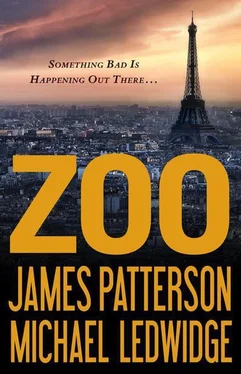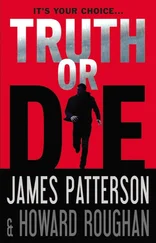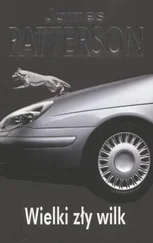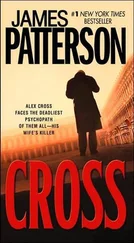“I told them to come with us to help find the tourists and guides, but, like my trackers, they’re terrified. They said something is wrong with the lions. The same superstitious boogie shit. The gods are angry. There’s black magic about. Ooga booga booga!”
Behind us, the cooks started singing some sort of chant.
“Ah, here they go,” said Abe, jerking a thumb over his shoulder at them. “Ooh, ee, ooh ah ah, ting, tang, walla walla bing-bang!”
Abe stomped the brake and brought the Rover to a sudden stop. He hopped out, went into his bag in the back, and took out one of the hunting rifles. It was a Winchester Model 70 bored for a massive .458 cartridge. He loaded a magazine with the huge brass shells and slapped it home with a clack. He climbed up into the back, maneuvering around the men, bags, and dogs, and strapped it into the truck’s gun rack.
“You bozos want black magic? I’ll show you some black magic,” he called back at them as he revved the engine and threw the truck into gear.
A LITTLE LESS than a mile northeast of the safari camp’s river dock, two massive male lions lounge on the highest rocks in their pride area. They lie on their stomachs, still as golden rugs, panting, catching the breeze. Their impassive amber eyes lazily scan the horizon.
Like dogs, but unlike humans, lions are unable to sweat through their skin. Their only effective means of thermoregulation is panting. The heavy breathing they are doing now, though, isn’t from the heat, or even from exertion.
It is from eating.
Beneath them, scattered throughout the thorny scrub of the forest glen, swarms of fat, shiny flies hover above the meat that lies rotting under the sun’s steady blaze. They tickle across the bones, collectively making a wavy droning noise like a cello holding a note in sustained vibrato. Human bodies—or, rather, human body parts—are strewn in the bloody grass. Rib cages and hip bones shine white as aspirin under the blinding sun.
The rest of the pride is arranged in a large, loose circle around the bones. Vultures hop around in the mess, their wings like shrugging shoulders, their necks like little worms, yanking rubber-snap strings of meat off the skeletons with their beaks. The lionesses and the cubs have eaten their fill, and are happily active now, tumbling around in the grass.
The two males are massive as golden hills. They are brothers, twins, almost identical, except now the older one is missing an eye, recently lost while taking over the pride. The brothers, having killed two of the former alpha males and driven off the third, have further established their dominance by devouring all their rivals’ cubs, four young females.
But the swell of power and dominance they felt when they took over was a feeble feeling compared to the killing of the two human groups.
A new feeling has overtaken the lions, a new understanding. One that changed their perception of humans from fellow predators—irritating, inconsequential animals to be ignored, mostly—into prey.
They saw them coming. Two of the smaller, swifter lionesses had climbed into a sausage tree above the tire trail and lain in wait. When the cars passed, the lionesses dropped in from above on the open metal boxes full of the pathetically weak mammals. Once those big naked monkeys were on their slow, idiotic feet, it had been a quick rout.
It wasn’t because the lions were particularly hungry. The humans had been nothing compared to the eighteen-hundred-pound Cape buffalo, the pride’s more typical prey. The cars had been like boxes full of snacks.
The two males slip off the rock, first one, then the other. They amble through the pride, heads held high, ears perked up, mouths closed, tails swishing from side to side. After a moment, the females begin to follow, heads held low.
As the two lions approach, a vulture standing on a woman’s face shrugs its shoulders and takes flight, flapping, awkward and sloppy as a big pigeon. The one-eyed lion nudges the meat with his paw. He holds it down and takes a bite, his jaw making a popping sound as his carnassial teeth efficiently peel meat off the bone.
After a moment’s chewing, he looks up and turns his remaining eye to the east. His ears swivel, his nostrils dilate. His sense of hearing is only slightly above average, but the sebaceous glands around his chin, lips, cheeks, and whiskers give him a powerful sense of smell.
He smells something. He glances at his brother, who is looking in the same direction now.
Humans, the two convey to each other with a glance, a growl. More humans.
The two males turn to the pride, changing their expressions and postures. They go through a repertoire of vocalizations, varying intensity and pitch, telling everyone what to do.
A CHATTERING FLOCK of storks burst from a treetop as we drove through a field some three miles or so north of the camp. They were marabou storks, distinguished by their wiry white hair, featherless pink necks, and tuxedo plumage—carrion eaters often found with vultures around carcasses. Undertaker birds, they’re called. Abe grimaced up at them. He was projecting a cool facade, but I could tell he was worried, which made me worried.
Actually, I had already been worried.
Since we’d landed at the deserted camp, I’d found myself thinking about my first trip to Africa. It was a grad-school field trip to the famous rock beds of the Karoo desert region in South Africa, which showed one of the world’s clearest geological snapshots of the history of life.
What I kept thinking about was a layer of sediment from two hundred and fifty million years ago that was completely empty of fossils. The lack of fossils in the rock was evidence of the Permian–Triassic extinction event—P–Tr, in geology shorthand. P–Tr, or the Great Dying, was the biggest and baddest of Earth’s major extinction events. Ninety percent of all species on the planet rapidly perished. It took many millions of years for the earth’s biodiversity to recover. There have been five such major extinction events; statistically, we’re about due for one.
The K–T event, the one that killed the dinosaurs, was almost certainly caused by an asteroid impact. But we’re still not sure about P–Tr. Some theorize that the P–Tr extinction was caused by volcanic activity. Or maybe an asteroid, or cosmic radiation. But no one really knows exactly why almost all the animals, vegetation, and insects in the world suddenly died.
It was the mysterious nature of that ancient total global ecosystem collapse that made the present HAC activity so unsettling. An animal’s behavior is the result of millions of years of evolution, thousands upon thousands of generations of adaptation. This evolution happens in response to changes in the environment. The environment changes, and some animals adapt to it, some don’t. To suddenly observe such anomalous behavior in wildly different species of animals all over the world wasn’t just alarming, it was unprecedented.
I opened my camera case and began to ready my video camera. I clipped in the battery, polished the lens, strapped on the shoulder mount.
As we rolled deeper into the Okavango Delta in search of the missing tourists, I was suspecting more strongly that some kind of macro-level environmental disturbance was underway.
I’d clacked in a new mini DV tape and was switching on my pricey-ass Sony image stabilizer when there was a commotion behind me. Abe’s two Rhodesian ridgebacks started barking like hell. Then, in an instant, my camera was no longer in my hands and something hard and cold was pressed against my throat and collarbone.
One of the men in the back was holding something against my neck, which I guessed was a machete, as that was what the other man had against Abe’s neck.
Читать дальше












